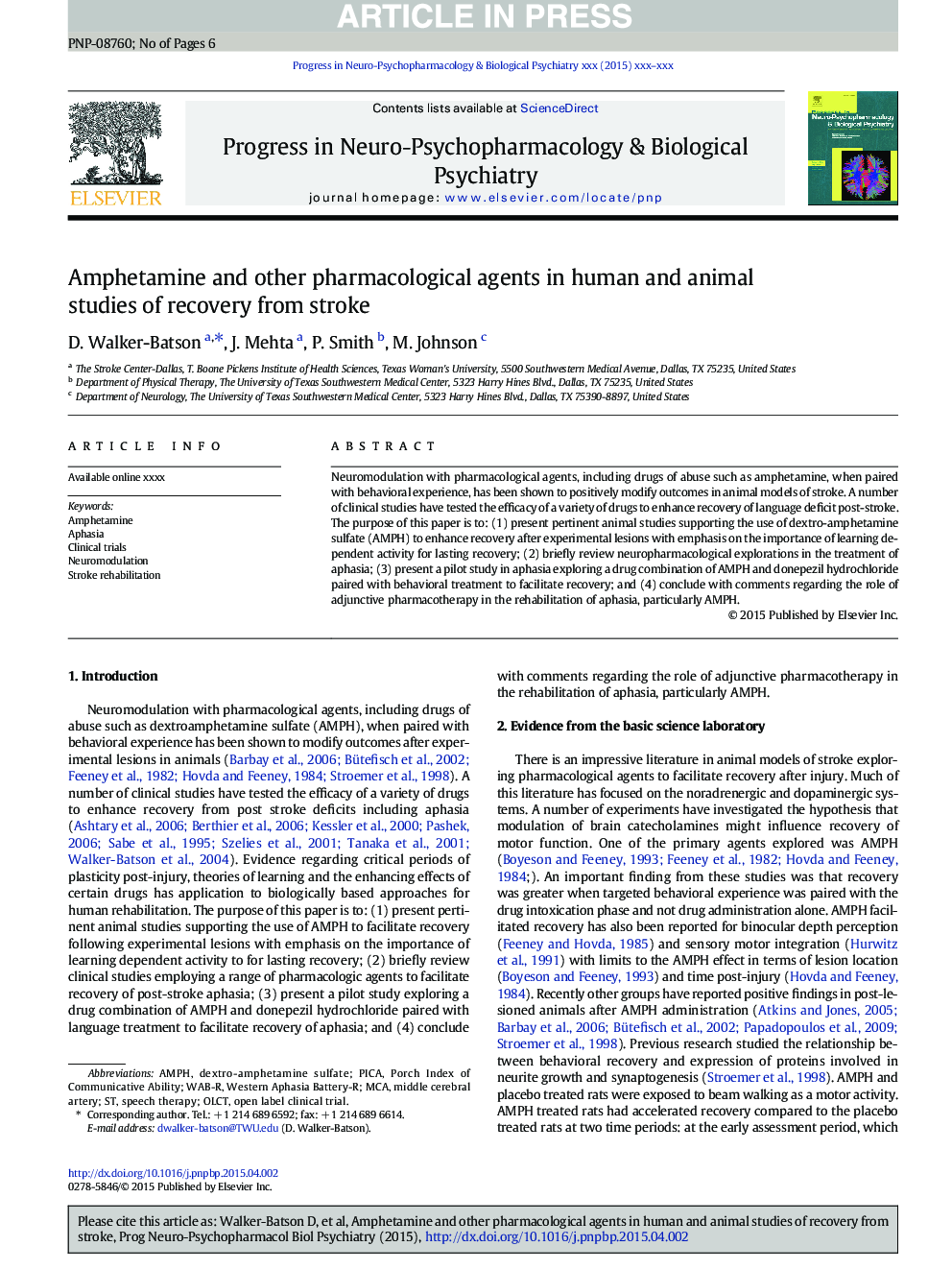| Article ID | Journal | Published Year | Pages | File Type |
|---|---|---|---|---|
| 5844286 | Progress in Neuro-Psychopharmacology and Biological Psychiatry | 2016 | 6 Pages |
Abstract
Neuromodulation with pharmacological agents, including drugs of abuse such as amphetamine, when paired with behavioral experience, has been shown to positively modify outcomes in animal models of stroke. A number of clinical studies have tested the efficacy of a variety of drugs to enhance recovery of language deficit post-stroke. The purpose of this paper is to: (1) present pertinent animal studies supporting the use of dextro-amphetamine sulfate (AMPH) to enhance recovery after experimental lesions with emphasis on the importance of learning dependent activity for lasting recovery; (2) briefly review neuropharmacological explorations in the treatment of aphasia; (3) present a pilot study in aphasia exploring a drug combination of AMPH and donepezil hydrochloride paired with behavioral treatment to facilitate recovery; and (4) conclude with comments regarding the role of adjunctive pharmacotherapy in the rehabilitation of aphasia, particularly AMPH.
Keywords
Related Topics
Life Sciences
Neuroscience
Biological Psychiatry
Authors
D. Walker-Batson, J. Mehta, P. Smith, M. Johnson,
